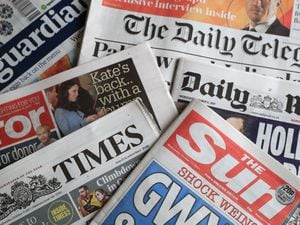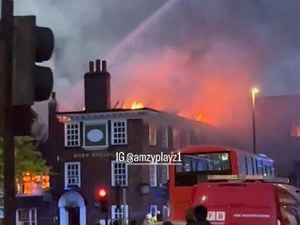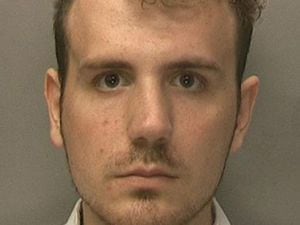Why was the statue of Edward Colston so controversial?
Campaigners have expressed anger at the commemoration of a figure prominently involved in Britain’s slave-trade past.
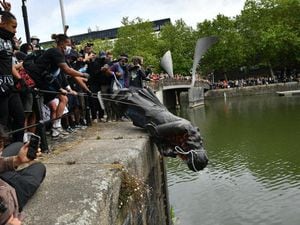
Almost 300 years since his death, demonstrators in Bristol have toppled the statue of a wealthy businessman who worked as a slave trader.
Edward Colston’s bronze memorial, situated on Colston Avenue in the city centre, was built to honour one of the “most virtuous and wise sons” of Bristol.
But in recent years, campaigners have expressed anger at the commemoration of a figure prominently involved in Britain’s slave-trade past.
Born into a prosperous Bristol merchant’s family, Colston was educated in London and joined the Mercers’ Company in 1673, where he traded in woollen textiles and wine.
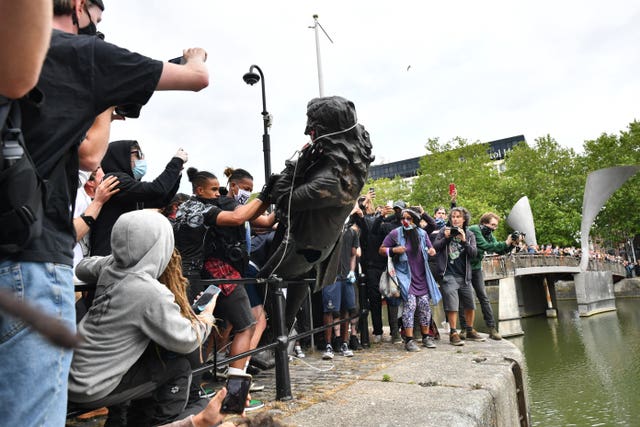
He became a member of the London-based Royal African Company – which at the time had the monopoly of Britain’s slave trade – in 1680, and between 1689-1690 took on the role of deputy governor.
Other members of the Colston family also had connections with the company: his brother Thomas supplied beads that were used to buy slaves, and his father William owned shares.
By 1689, the company had transported around 100,000 enslaved Africans in chains to the Americas, who were branded with the firm’s initials RAC on their chests.
Unhygienic and cramped conditions meant many of those enslaved died while being shipped, with their bodies said to be thrown overboard.
Historian and broadcaster David Olusoga said one of the main problems the statue caused was that people did not understand why it was a source of upset for many in the city.
“This is a city that is about 14% BAME with a statue of somebody who was not just a slave trader, he was involved in the Royal Africa Company, the company that trafficked more people into slavery than any in British history,” he told BBC News.
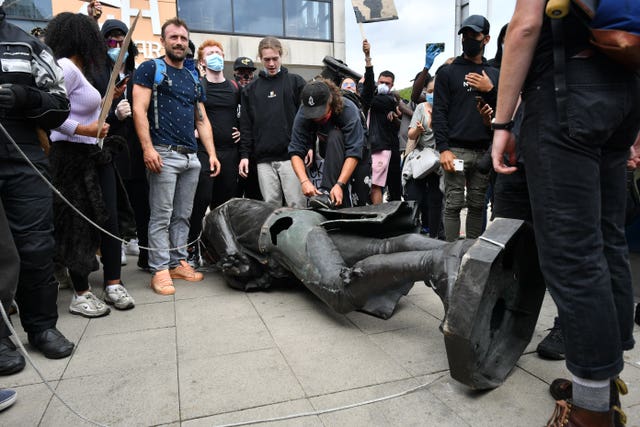
“The fact that it has not been seen as a problem for such a long time, that so many people are confused as to why the statue offends and upsets so many people, has been the problem.”
Colston donated money to causes in and around Bristol before his death in 1721 – including to the city’s churches, founded almshouses, Queen Elizabeth’s Hospital School, and founding a religious school for boys.
According to Historic England, his involvement in the slave trade was the source of much of the money which he bestowed in the city.
Due to his philanthropy, Colston’s legacy has been honoured by the city he once called home, where streets, memorials and buildings bear his name.
An inscription on the statue, which was built in 1895, read: “Erected by citizens of Bristol as a memorial of one of the most virtuous and wise sons of their city.”
Campaign group Countering Colston has called for an end to Bristol “publicly celebrating” the controversial figure, and for the city to recognise the “true history of transatlantic slavery, colonialism and exploitation”.
An 11,000-strong petition said the statue of Colston had “no place” in Bristol’s “beloved” city centre.
In a victory for campaigners, Colston Hall – Bristol’s largest concert hall – announced in 2017 it would be re-branding, while a school formerly known as Colston’s Primary School was renamed last year.

